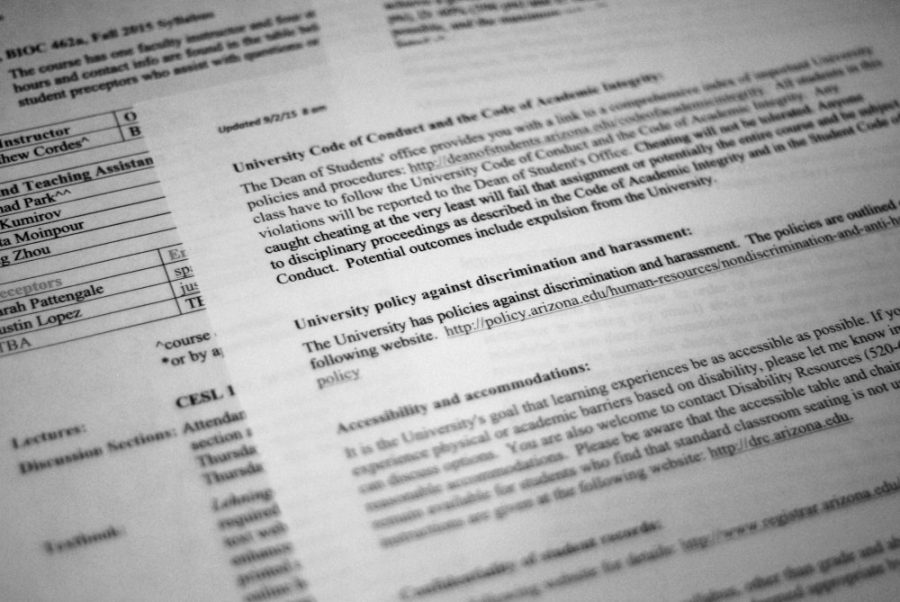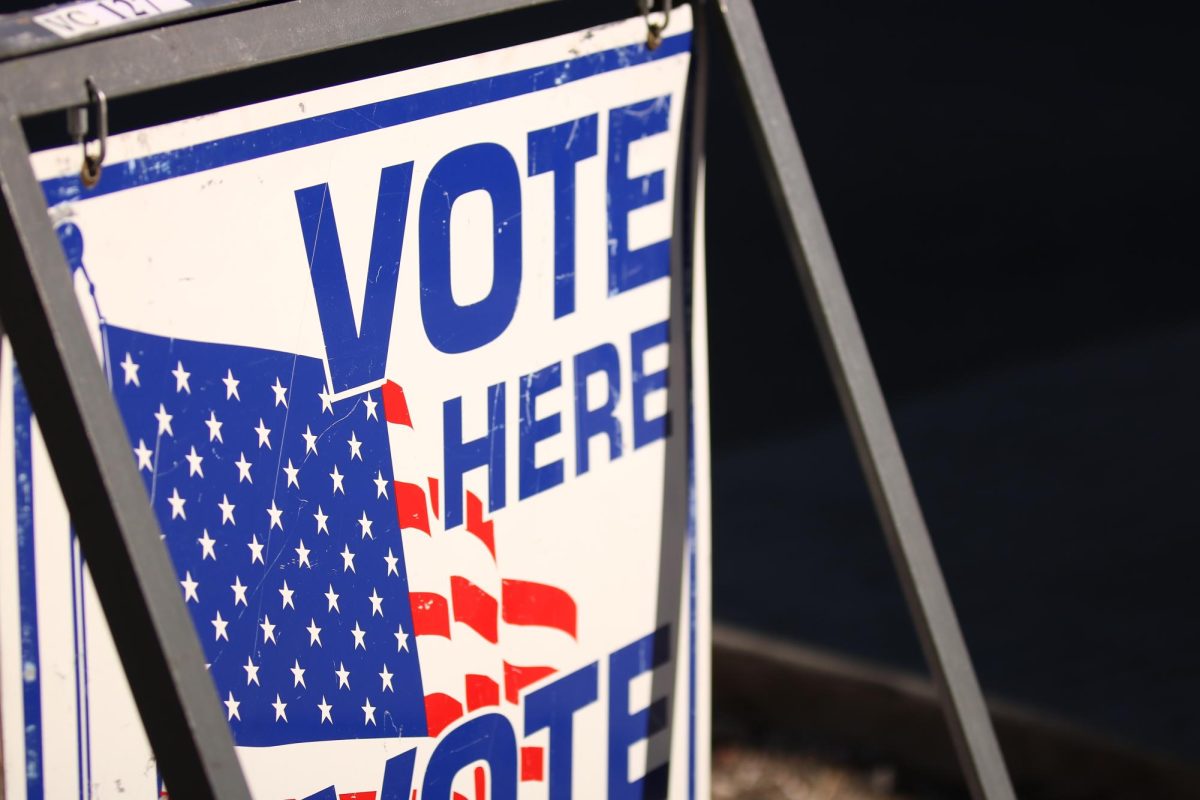Universities across the country have started a movement that encourages professors to include Title IX language in their syllabi. This movement reflects the recent increase in awareness directed toward campus sexual assault.
Kendal Washington White, the dean of students for the UA, said a new syllabus policy will be implemented in the spring of 2016, where each syllabus will include the university’s non-discrimination and anti-harassment policy. This policy indirectly addresses sexual harassment, which includes sexual assault.
Title IX is a federal law that prohibits violence and harassment based on sex, gender, race, color, national origin, religion, age, disability, sexual orientation, gender identity or genetic information. Any type of discrimination is considered a civil rights offense.
Mary Tucker, Title IX coordinator for the UA, said she is in favor of expanding Title IX information to UA students.
“I am supportive of providing information and resources to students in a number of ways, and would support efforts to include information in syllabi,” Tucker said.
Tucker added that it is crucial for UA students to know how to report sexual harassment and assault, as well as to have access to resources and support.
The UA launched an online training program for students, as well as a website for Title IX that includes the university’s policies and processes regarding sexual harassment, discrimination and assault.
“Faculty, in particular, are in a unique position to help students who have experienced sexual harassment,” Tucker said. “As advisors and mentors, they hold a unique position of trust in students’ lives and can serve as a primary support in times of crisis.”
Jacqueline Chau, a public health senior and co-director of Students Promoting Empowerment and Consent, added that she encourages professors to include this information in their syllabi because “they never know just how having that one piece of information could immensely help someone going through trauma if they were unaware of what resources to seek.”
Chau said she believes the UA could greatly improve by having open conversations about issues like sexual assault.
“In orientation, the issue is brought up very briefly, but does not necessarily cover the in-depth rights and resources students should know prior to attending the university,” Chau said.
Chau added that the UA could work on making resources more easily accessible.
“Sexual assault is seen as a taboo topic, but it is a dialogue we need to have in order to combat rape culture and spread awareness,” Chau said.
According to Chau, those who have experienced trauma deserve to know the resources and rights they have as a student on campus. She added that no one should have to deal with the frustration and confusion of having to search for help with these issues just because it is not readily available.
Jacquelyn Hinek, co-director of SPEAC, said professors include policies such as academic integrity and non-threatening behavior expectations on their syllabi because these mandates ensure a safer, more productive environment.
Hinek stated that the disruption of these codes of conduct can disrupt student learning, which is why Title IX language would be beneficial to add on to the syllabi.
“Sexual trauma, too, can deeply affect a student’s academic performance,” Hinek said. “Simply attending classes can be a daily struggle for victims of trauma, especially when the student shares a classroom with their abuser[s].”
The inclusion of Title IX information in syllabi could serve as a prevention tool for sexual assault and a platform for survivors to report incidents, Tucker said.
“A statement in a syllabus might also send a message of accountability, … reminding all students that the university holds perpetrators accountable for their actions. … Information in syllabi could [also] provide students with the tools they need to come forward and report sexual violence as well as request assistance or support.”
Follow Terrie Brianna on Twitter.









